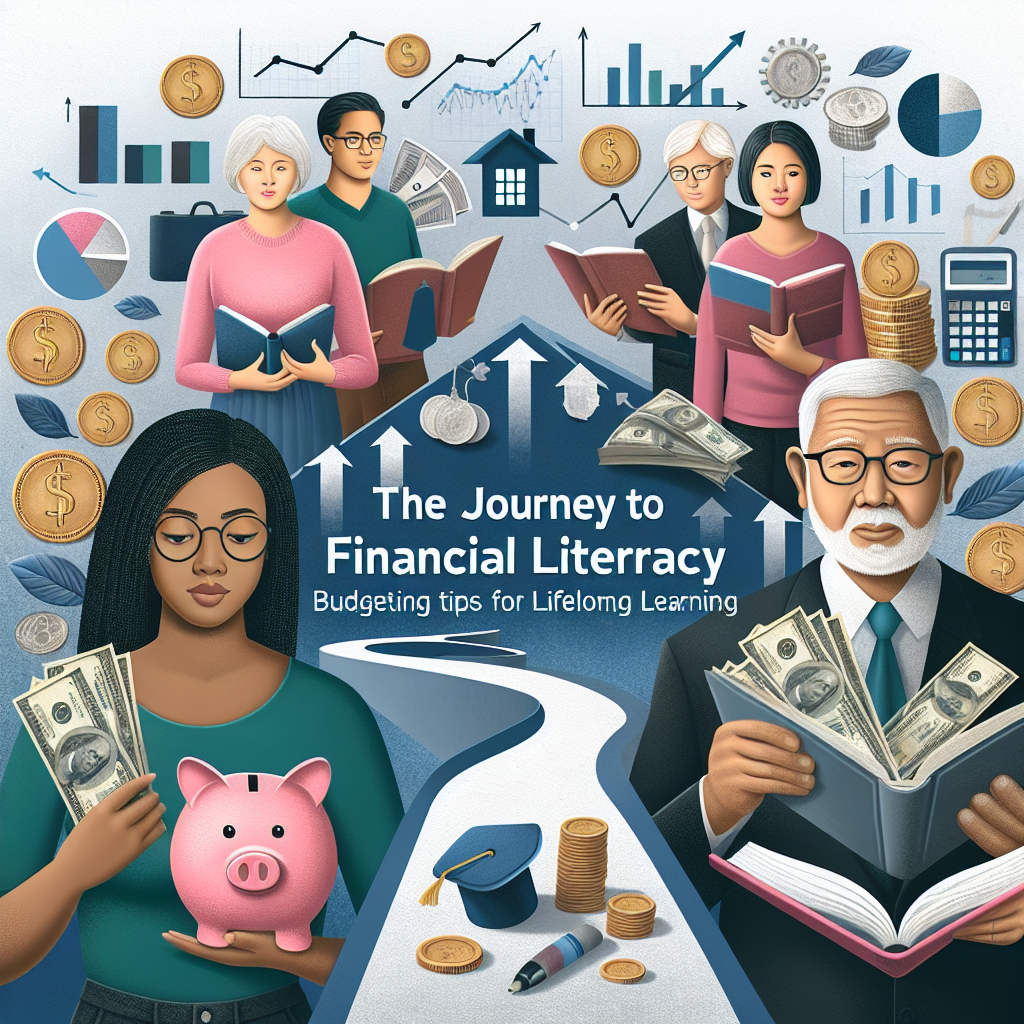In today’s fast-paced world, financial literacy is more important than ever. Understanding how to manage your money can empower you to make informed decisions that lead to a stable and prosperous life. This article explores essential budgeting tips that can help you on your journey toward financial literacy while emphasizing lifelong learning.
What is Financial Literacy?
Financial literacy refers to the ability to understand and use financial skills effectively, including budgeting, investing, and managing debt. A strong foundation in financial literacy can lead to smart financial decisions, freedom from debt, and the ability to save for the future.
The Importance of Financial Literacy
Becoming financially literate is crucial for several reasons:
- Improved Financial Stability: Understanding how to budget and manage money helps you maintain financial stability.
- Better Decision-Making: Knowing financial principles enables you to make informed investment and spending decisions.
- Debt Management: Financial literacy provides the tools to manage and reduce debt wisely.
- Emergency Preparedness: Being financially literate prepares you to handle unexpected expenses.
The Role of Budgeting in Financial Literacy
Budgeting is a key component of financial literacy. It involves creating a plan for your income and expenses, allowing you to track where your money goes and how to allocate it effectively.
How to Create a Budget
-
List Your Income: Start by calculating your total monthly income, including salaries, bonuses, and any side hustles.
-
Track Your Expenses: Keep a detailed record of your monthly expenses, both fixed (like rent and utilities) and variable (like groceries and entertainment).
-
Categorize Your Spending: Divide expenses into needs (essentials) and wants (non-essentials) to determine where you can cut back.
-
Set Financial Goals: Establish short-term (saving for a vacation) and long-term goals (retirement savings) that give you a clear focus on what to budget for.
- Adjust and Monitor: Review and adjust your budget regularly to accommodate changes in financial circumstances.
Tools for Effective Budgeting
Several budgeting tools and applications can simplify the budgeting process:
- Spreadsheets: Use Excel or Google Sheets for custom budgeting templates.
- Budgeting Apps: Consider apps like Mint or YNAB (You Need A Budget) for automated tracking and categorization.
- Envelope System: For those who prefer cash, utilize envelopes to physically allocate your spending limits for various categories.
Lifelong Learning: Expanding Your Financial Knowledge
Financial literacy is not a one-time achievement; it’s a lifelong journey. The financial landscape is continually changing, with new products, regulations, and trends emerging regularly.
Resources for Continuous Learning
-
Books: Read financial literacy books like "The Total Money Makeover" by Dave Ramsey or "Rich Dad Poor Dad" by Robert Kiyosaki for foundational knowledge.
-
Online Courses: Websites like Coursera and Khan Academy offer free courses on finance and budgeting for varying skill levels.
-
Podcasts and Webinars: Tune into financial podcasts or attend webinars to stay informed about current trends and strategies.
- Financial Blogs: Follow reputable financial blogs that provide articles, tips, and resources on budgeting and personal finance.
Networking and Community Learning
Engage with communities focused on financial literacy. Joining discussion groups or local workshops can provide opportunities for valuable exchanges and insights. Learning from others’ experiences can accelerate your understanding of budgeting and personal finance.
Common Budgeting Mistakes to Avoid
-
Ignoring Irregular Expenses: Failing to account for annual or semi-annual expenses, such as car insurance or taxes, can lead to budget shortfalls.
-
Underestimating Needs: Make sure to objectively evaluate your true needs versus wants. This will prevent overspending on non-essential items.
- Not Reviewing Regularly: A budget is not a static document. Unless you review it periodically, you won’t know if you’re on track with your financial goals.
Conclusion: Your Journey Starts Now
The path to financial literacy is paved with knowledge and proactive budgeting. By adopting effective budgeting strategies, you’ll lay a strong foundation for financial well-being. Remember, financial literacy is a continuous journey of learning and adaptation. Start today, embrace the process, and equip yourself with the tools needed to navigate your financial future successfully.

